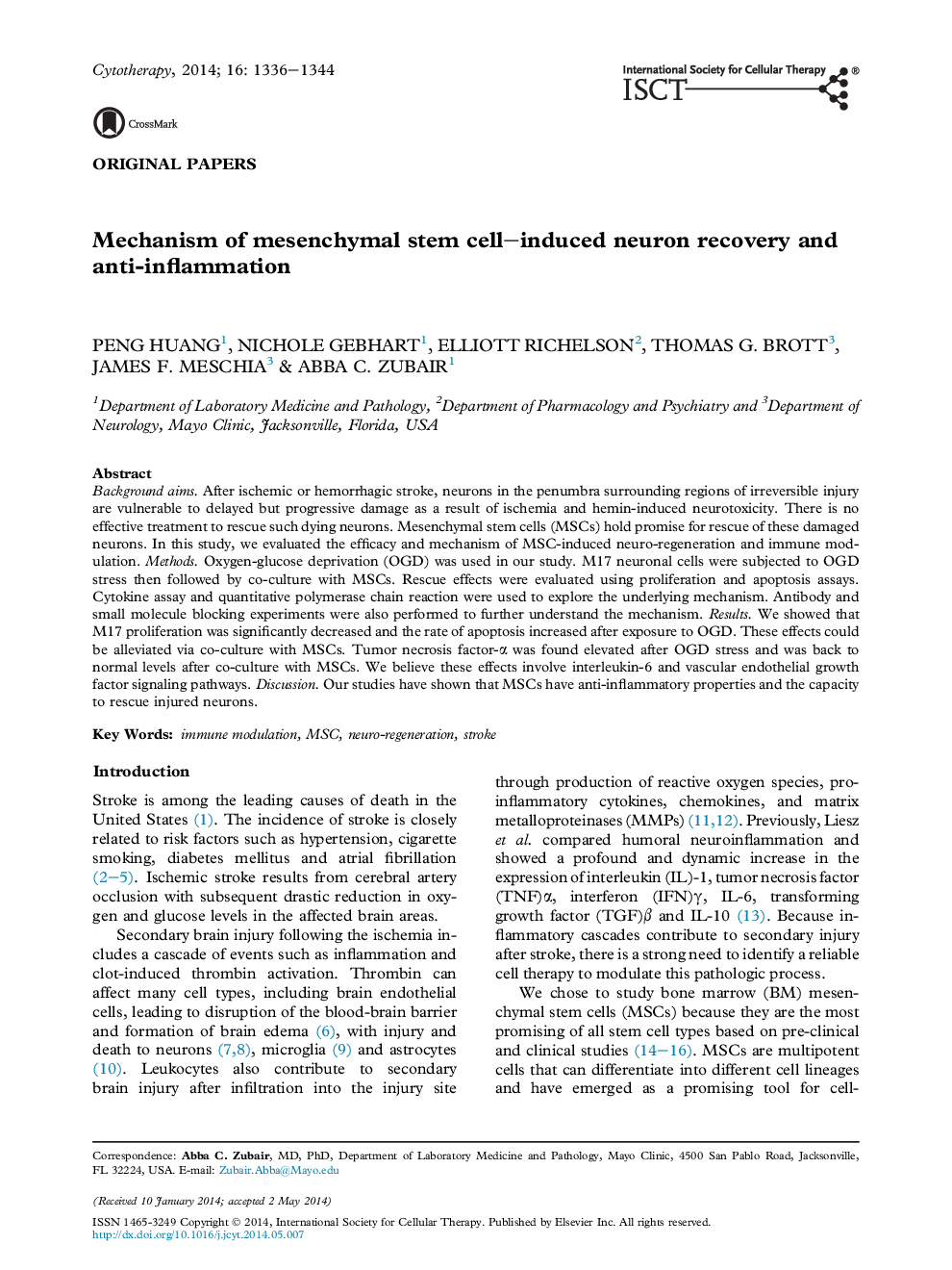| Article ID | Journal | Published Year | Pages | File Type |
|---|---|---|---|---|
| 2171336 | Cytotherapy | 2014 | 9 Pages |
Background aimsAfter ischemic or hemorrhagic stroke, neurons in the penumbra surrounding regions of irreversible injury are vulnerable to delayed but progressive damage as a result of ischemia and hemin-induced neurotoxicity. There is no effective treatment to rescue such dying neurons. Mesenchymal stem cells (MSCs) hold promise for rescue of these damaged neurons. In this study, we evaluated the efficacy and mechanism of MSC-induced neuro-regeneration and immune modulation.MethodsOxygen-glucose deprivation (OGD) was used in our study. M17 neuronal cells were subjected to OGD stress then followed by co-culture with MSCs. Rescue effects were evaluated using proliferation and apoptosis assays. Cytokine assay and quantitative polymerase chain reaction were used to explore the underlying mechanism. Antibody and small molecule blocking experiments were also performed to further understand the mechanism.ResultsWe showed that M17 proliferation was significantly decreased and the rate of apoptosis increased after exposure to OGD. These effects could be alleviated via co-culture with MSCs. Tumor necrosis factor-α was found elevated after OGD stress and was back to normal levels after co-culture with MSCs. We believe these effects involve interleukin-6 and vascular endothelial growth factor signaling pathways.DiscussionOur studies have shown that MSCs have anti-inflammatory properties and the capacity to rescue injured neurons.
